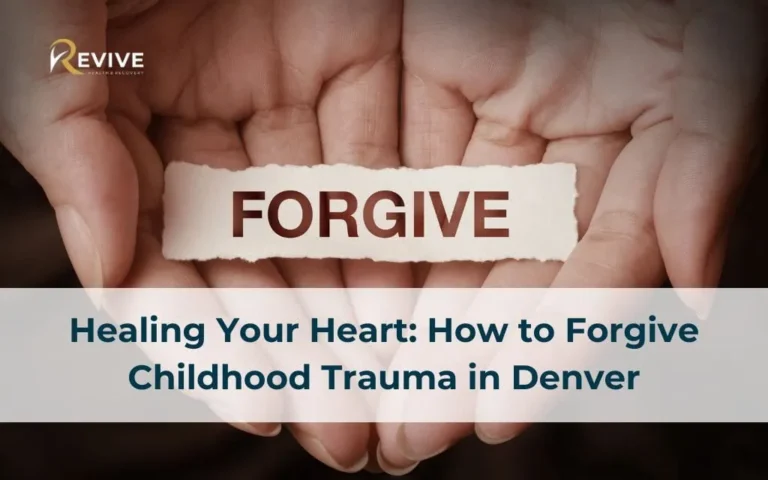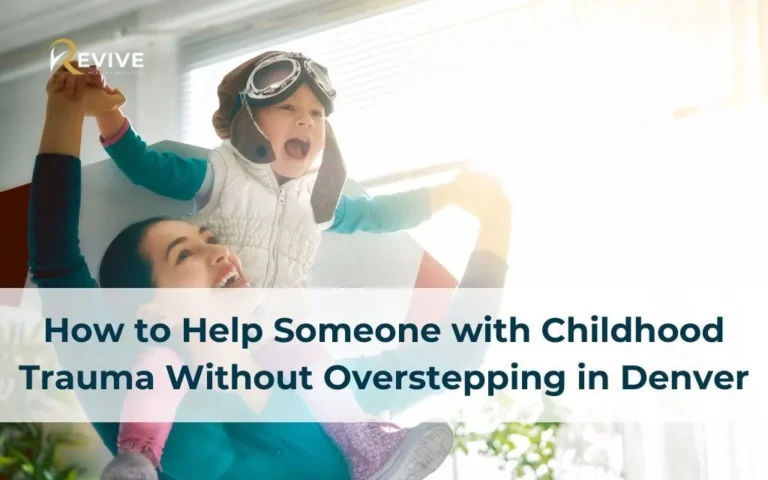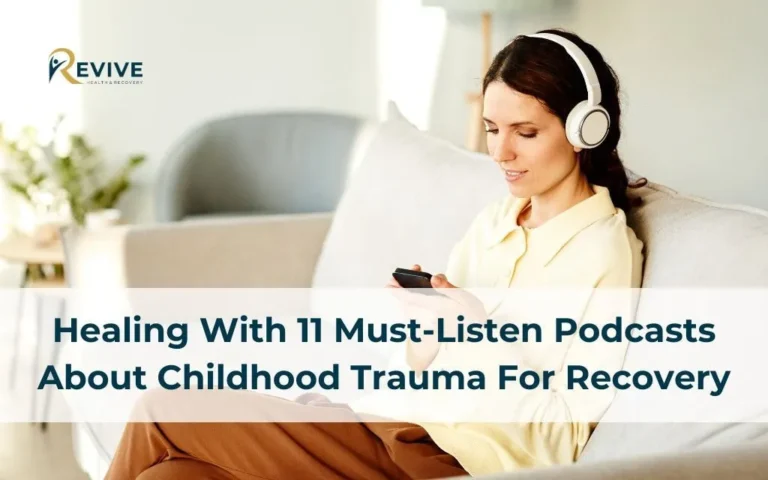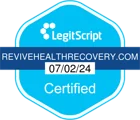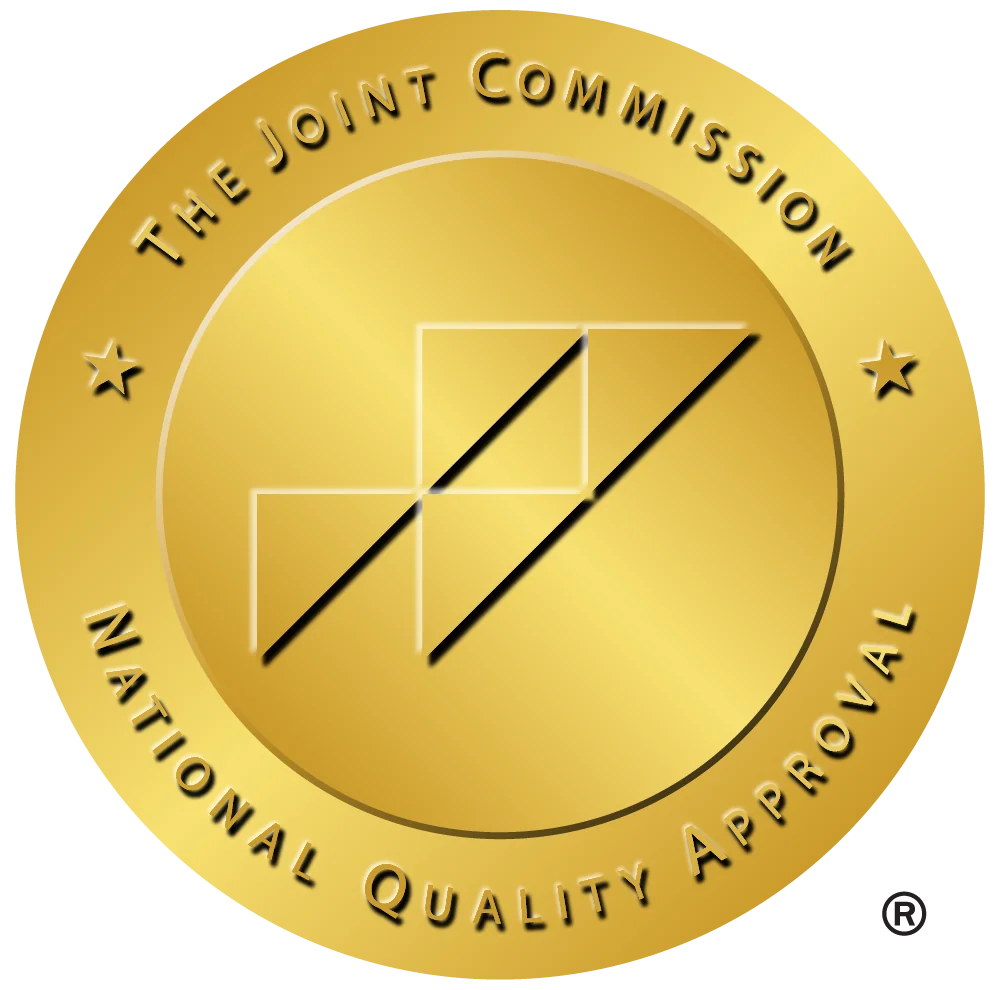Postpartum depression is a silent struggle that affects many new mothers, often leaving them feeling isolated and overwhelmed. The challenges of adjusting to life with a newborn, combined with the emotional toll of depression, can make seeking help feel daunting. Yet, taking that first step toward depression treatment is a courageous act that can lead to hope, healing, and a brighter future for both mother and baby.
If you’re searching for compassionate and effective postpartum depression treatment near me, Revive Health Recovery is here to help. With personalized care and proven treatments, we guide individuals through their recovery journey, offering the support and understanding needed to reclaim their mental health. Let’s explore how seeking help can transform the postpartum experience and provide the strength to thrive.
What Is Postpartum Depression?
Definition of Postpartum Depression
Postpartum depression (PPD) is a medical condition that affects many women after having a baby. It causes strong feelings of sadness, worry, and extreme tiredness that can last a long time.
These feelings may make it hard for moms to care for themselves and their baby. PPD can happen anytime after childbirth, but it often starts within the first 1 to 3 weeks. Getting treatment is important to feel better.
PPD is a type of perinatal depression, which includes depression during pregnancy or within the first year after giving birth. It’s the most common health problem for new moms, affecting about 1 in 7 women (15%).

Symptoms of Postpartum Depression
Postnatal depression can feel a lot like regular depression. Here are some common symptoms:
- Feeling sad or down
- Not enjoying things you usually love
- Feeling tired or out of energy
- Trouble focusing or paying attention
- Feeling bad about yourself or lacking confidence
- Trouble sleeping, even when your baby is sleeping
- Changes in how much or how little you eat
You might also feel distant from your baby or partner, and sometimes have scary thoughts about hurting yourself or your baby. It’s important to remember that having these thoughts doesn’t mean you’ll act on them.
If you’re feeling this way, talk to someone you trust, like a friend, family member, doctor, or midwife. The sooner you share your feelings, the sooner you can get the support and help you need. You’re not alone, and help is available.
Types of Postpartum Depression Treatment Near Me Options
If you’re looking for postpartum depression treatment near you, know that there are effective options to help you feel better. Treatment often includes therapy with a mental health professional, like a psychiatrist or psychologist, and sometimes prescription medications like antidepressants to support recovery.
By combining professional treatment and healthy habits, you can work toward recovery and start feeling like yourself again. If you’re unsure where to start, searching for “postpartum depression treatment near me” can help you find support in your area.
Postpartum Depression Therapy
Postpartum depression (PPD) is a mental health condition that can be treated effectively with therapy. One common treatment is talk therapy with a mental health professional like a psychiatrist, psychologist, or counselor.
Talking in a safe and supportive environment can help new moms who feel anxious, scared, or alone. During therapy, women can learn ways to cope with their feelings, solve problems, and set realistic goals to manage their postpartum depression.
Two popular types of talk therapy are:
- Cognitive Behavioral Therapy (CBT): Helps moms understand and change negative thinking patterns.
- Interpersonal Therapy (IPT): Focuses on improving relationships and handling changes in life.
Group therapy or support groups can also provide encouragement and connection with others who understand what you’re going through. Some therapies may even involve your spouse or family to support healing together.

Medication
Prescription medication can be an important part of treating postpartum depression, especially when recommended by a doctor or psychiatrist. One example is Brexanolone, a medication designed specifically for postpartum depression.
The type of medication prescribed depends on factors like:
- How severe the depression is
- Whether the mother is breastfeeding
- The mother’s medical history
- Any other medications the mother is currently taking
Antidepressants are the most commonly used medications for postpartum depression. They help stabilize mood and reduce symptoms like sadness, irritability, and mood swings. Different kinds of antidepressants work in unique ways to balance brain chemicals.
For more severe cases, other medications may be prescribed. These include treatments for postpartum anxiety, obsessive-compulsive disorder (OCD), or postpartum psychosis. In these situations, anti-psychotic medications may be used to adjust brain chemicals, helping to improve mood and behavior.
Lifestyle And Home Remedies
Along with professional help, there are things you can do to support your postpartum depression treatment and feel better faster:
Make Healthy Choices
- Get some exercise, like taking a walk with your baby or doing light stretches.
- Eat healthy foods and try to avoid alcohol.
- Make sleep a priority – rest when you can.
Set Realistic Expectations
- Don’t try to do everything perfectly. It’s okay to leave some tasks for later.
- Focus on what’s most important and let go of unrealistic goals for a spotless home or packed schedule.
Take Time for Yourself
- Ask your partner or a sitter to watch your baby so you can have a break.
- Enjoy a hobby, read a book, or watch a show you love.
- Plan time to reconnect with your partner or friends.
Stay Connected
- Share your feelings with your partner, family, or friends.
- Talk to other moms who’ve had similar experiences. Hearing their stories can help you feel less alone.
Ask for Help
- Let the people around you know you need support, whether it’s babysitting or help with household tasks.
- Use the extra time to rest, see a movie, or grab coffee with friends.
- You might also ask for advice on parenting skills, like calming a fussy baby or improving sleep routines.

How to Prepare for Postpartum Depression Treatment Near Me
After your first appointment, your doctor might suggest seeing a mental health provider to create a treatment plan that works for you. It can be helpful to bring a trusted family member or friend to the appointment to remember all the details.
What You Can Do
Before your appointment, make a list of:
- Symptoms you’ve noticed and how long they’ve lasted.
- Any health conditions you have, like depression or other mental or physical health issues.
- All medications you take, including prescriptions, over-the-counter medicines, vitamins, or supplements, with their doses.
- Questions you want to ask your provider.
Questions to Ask Your Provider
- What is my diagnosis?
- What treatments will help me the most?
- Are there any side effects to these treatments?
- How soon can I expect to feel better?
- Is the medication safe while breastfeeding?
- How long will I need treatment?
- Are there lifestyle changes that could help me feel better?
- How often should I come for follow-ups?
- Am I at risk for other mental health problems?
- Could this happen again if I have another baby?
- Can anything prevent it if I have another baby?
- Are there handouts or websites you recommend?
Feel free to ask any other questions during your appointment. Finding postpartum depression treatment near me is a great first step, and being prepared will help you get the most out of your visit.

How Can I Help Someone With Postpartum Depression?
If someone you care about is dealing with postpartum depression, your support can make a big difference. Here are some simple ways to help:
- Learn the Signs: Understand what depression and anxiety look like, and encourage them to talk to a doctor or mental health provider.
- Be a Great Listener: Let them share how they feel without judgment. Remind them you’re there to listen and help.
- Lend a Hand: Offer to help with daily chores like cleaning, cooking, or running errands to lighten their load.
- Help Them Rest: Volunteer to care for the baby while they sleep or take a much-needed break.
- Encourage Professional Help: Suggest they see a therapist or mental health provider. Offer to help schedule an appointment or go with them for extra support.
Finding postpartum depression treatment near me and offering understanding and practical help can guide them toward feeling better. Your kindness can make all the difference.
Revive Health Recovery: Trusted Depression Treatment in Denver
At Revive Health Recovery, we understand that taking care of your mental health is just as important as caring for your physical health. That’s why we offer complete depression treatment plans to help you overcome challenges and build a strong, lasting recovery.
Our team includes experienced professionals like licensed therapists, double board-certified psychiatrists, and addiction specialists who are dedicated to providing the best care possible. We use proven therapies like Cognitive Behavioral Therapy (CBT), Dialectical Behavior Therapy (DBT), EMDR Therapy, and trauma-focused therapy to meet your unique needs.
In addition to treating depression, we also help with other mental health conditions like anxiety, bipolar disorder, PTSD, OCD, and more. We also specialize in treating addiction, whether it’s substance abuse or behavioral issues. At Revive Health Recovery, we’re here to support you on your journey to feeling better.
Conclusion
Postpartum depression treatment near me is a vital step toward healing and finding balance as a new mom. Whether through therapy, medication, or lifestyle changes, professional help can make a world of difference. By reaching out for support, you’re not only caring for yourself but also creating a brighter, healthier future for your family. Remember, you’re not alone—help is available, and recovery is possible. Take the first step today to reclaim your joy and confidence in motherhood.

